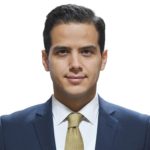Project Description
Forced Migration
Annotated Bibliography
Summary
There are nearly 80 million displaced individuals today, a number which has doubled in the past decade. Forced displacement has serious consequences for all involved stakeholders – forced migrants, countries of first asylum and destination, and countries of origin. Muslim countries such as Afghanistan, Pakistan, Iraq, Sudan and Syria are amongst the countries that assume the largest numbers of forced migrants. In fact, Muslim states and Muslim communities play a central role in hosting approximately 50% of the global refugee population. Additionally, a significant number of forced migrants identify as Muslim. In 2016, almost half of the forced migrants entering the United States identified as Muslim.
Despite the size and impact of transnational Muslim development and aid organizations, they are viewed skeptically by stakeholders and policy makers due to Islamophobia, perceived ties to terrorism, accountability concerns, and insular practices. These concerns layer on top of the overall marginalization of faith-based actors. This annotated bibliography seeks to bridge recognition and understanding of the Muslim humanitarian sector is is playing a large role in humanitarian aid in forced migrants but marginalized from mainstream conversation.
AUTHOR
Yusuf Aydın was born in Cologne, Germany in 1986 as a child of an immigrant family. He completed his undergraduate education in International Relations at Selçuk University in 2010. For 6 years, he worked in various units of WEFA, an international aid organization headquartered in Cologne that conducts humanitarian aid activities in 70 countries. In his capacity as a WEFA project manager, he visited project sites in more than 30 countries. He also conducted training programs to improve cooperation with partner organizations and to strengthen them in their own countries. Until 2016, he served as board member and head of foreign affairs. Since 2016, Aydın has been based in Ankara, Turkey and has been working as an expert in an international think tank that carries out various projects related to European Turks.
Aydın also took an active role in various youth associations. Between 2013 and 2015, he served as the general chairman in charge of youth branches at UID (Union of International Democrats), which has a total of 253 branches in 17 countries in Europe. He has pioneered dozens of activities to accelerate the integration of immigrant children in Europe into society and increase their political participation.
He has a master’s degree in International Cooperation and Humanitarian Aid from the Kalu Institute, Spain. He is currently completing his second master’s degree in Philanthropy at Indiana University and is a Fellow of the Zakat Foundation Institute. Aydın is married and has two children. In addition to his mother tongue Turkish, he is fluent in German and English.

